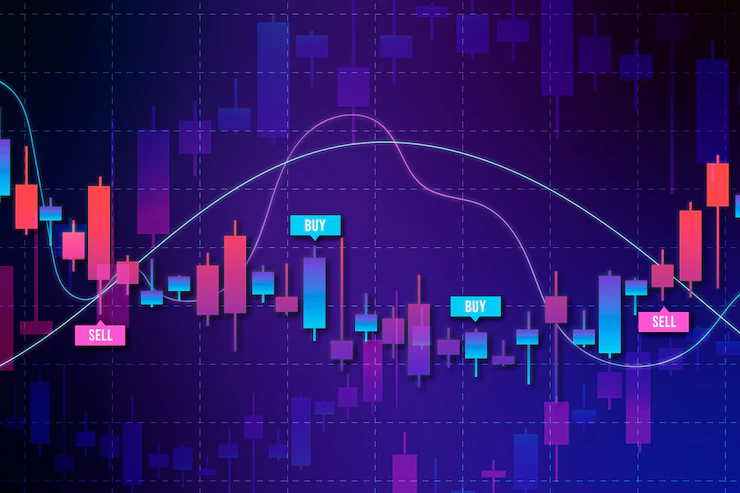The stock market is one of the investment platforms that readily come to mind when (especially) new investors think about investing. The truth is that this investment platform promises a lot. This is the reason many people take this investment route.
Be that as it may, you need to know that this investment platform has its few downsides. However, they are few enough to have caused many people financial wrecks in the past. The point is not to discourage you from investing in the stock market.
Trading commodities can be a great decision if you are looking to diversify your portfolio. Historically, precious metals like gold and silver have been tried-and-tested safe investment options as far as traders are concerned. You can get in touch with a leading gold trading broker to evaluate your options and then proceed accordingly by trading these commodities.
However, it is about opening your eyes to some of its dark sides and making sure you see the need to diversify your investments. This way you can make the most of many investment platforms or make sure you are not completely at a loss if the stock market has problems.
For those that need to better understand the possibility of the stock market crashing, you can visit: https://en.wikipedia.org/
You would discover that regardless of where they are situated, no stock market is completely immune from a crash. Investors in places like the United States, the United Kingdom, China, Brazil, EU Nations, Dubai, Japan, South Korea, and many other places have had this experience.
It is for this reason we all need to equally consider investing in other profitable assets as well. On this note, this article will shed some light on gold and silver investment.
The ways this can play out and a few other things will be explained here. The information here is very important and so you are advised to keep reading. You should also pay rapt attention as you do so.
Gold or Silver – Which Should You Invest in?
For the record, both precious metals are not the only options that can be considered by those hoping to make the most of the precious metal market. However, both are unarguably the most common options for precious metal investors.
Other than this, some of the details discussed concerning both precious metal assets are equally applicable to others. Having established this, the million-dollar question on many people’s minds is “should I invest in gold or silver?”
There are many things you need to consider to make the proper decision in this regard. One of them is something known as the gold-silver ratio.
This is about using the value difference between both precious metal assets to make informed decisions as an investor. Fortunately, there is always a clear figure of this ratio to help people make the right choice. You need to make your decisions based on this ratio amongst other things. This is so that:
- You choose precious metals based on their prospects
- You get your assets at a market valuation that is fair
- Your assets will not be undervalued when it is time to liquidate the assets
These are some of the basic reasons you should take this ratio seriously as there are a few other reasons. Against this backdrop, you should also make sure you are working with real-time information.
This is to be certain that your investment decisions are well informed. If you would like to know more about the gold-silver ratio (especially how it is calculated), you can read this article.
Investing in Gold and Silver
Some similarities come with investment in gold and/or silver. One of them is that they share the same investment methods for the most part.
So, this is valuable information for those planning to invest in silver, gold, both precious metals, and even a few other precious metals. Having established this, some of the methods that can be considered include:
1. Bullion Purchase
There are a few precious metal forms that would pass as bullion. However, the underlying factor here is that the precious metals are gotten, sold, and valued based on their weight. This is unlike what is obtainable with collectibles and special precious metal coins.
Speaking of bullion, they would either be offered as bullion coins or bars. The latter usually weighs one ounce and its valuation is based on this. On the other hand, the former weighs a lot more. This is no less than 400 ounces.
To invest in gold and silver using this method, you have to work with a precious metal exchange company. Many service providers are in this business. Some of the very common ones include Money Metals, JM Bullion, Vaulted, and a host of others.
It is very important that your chosen precious metal exchange company ticks all the right boxes. This is in terms of credibility, impressive track record, and a long list of other important things. You are advised to get a full review from a credible review platform(s) to make the right choice.
2. Gold IRA
The Internal Revenue Service is heavily involved in formulating tax laws and seeing to it that they are implemented in this country. This is especially at the federal level.
You should also know that this body is also actively involved in regulating the IRA scheme. The IRA scheme offers a lot of tax benefits to account holders and the good news is that there is an IRA plan that allows people to invest in precious metals.
The truth is that there are only 4 precious metal assets that the system allows account holders to invest in. These are gold, silver, platinum, and palladium.
You are advised to understand the rules set by the IRS as regards investing in precious metal assets. These are especially rules that center on withdrawal of precious metal assets, storage, eligible forms of precious metals, approved purchase techniques, and so on.
3. ETFs
This is an investment option that is quite popular. This is especially as it concerns investment in the stock market. The good news is that the Exchange Traded Fund (ETF) system is not restricted to the stock market.
You can also make the most of the precious metal market using this system. Other than the bullion purchase method discussed above, this one would not require handling the assets physically.
Frankly, this is one of the advantages of this silver and gold investment method. For more on this subject, you can visit: https://www.businesstoday.in/commodities/story
Conclusion
We have discussed a few things you need to know as someone hoping or planning to invest in silver or gold. You should also know that some of the information here will help you invest in other precious metal assets properly. So, you are advised to make the most of these details going forward.
Read Also:
- 5 Reasons Why Bitcoins Are Considered Reliable Investments
- 5 New Assets To Diversify Your Investments In 2021
- Top 5 Investment Decisions You Need To Make In Your Thirties


























